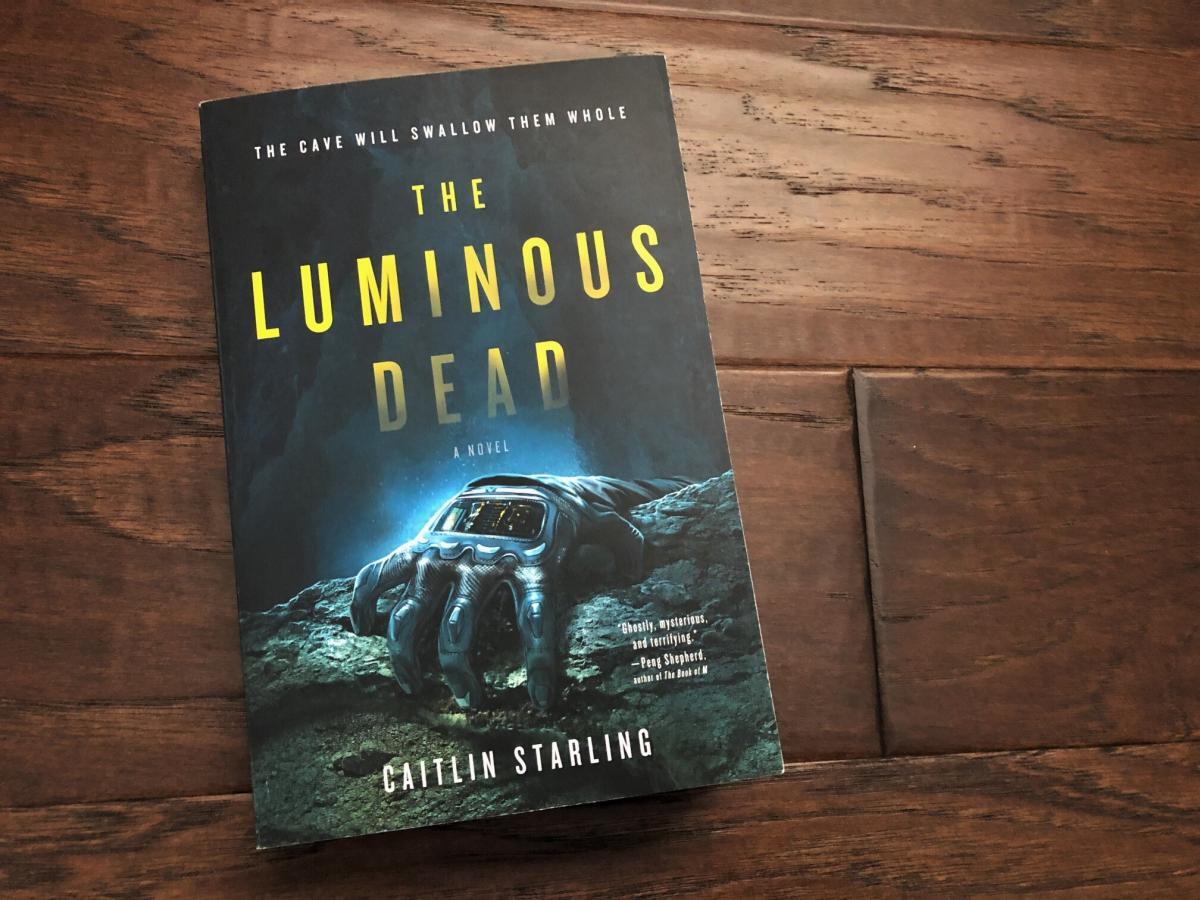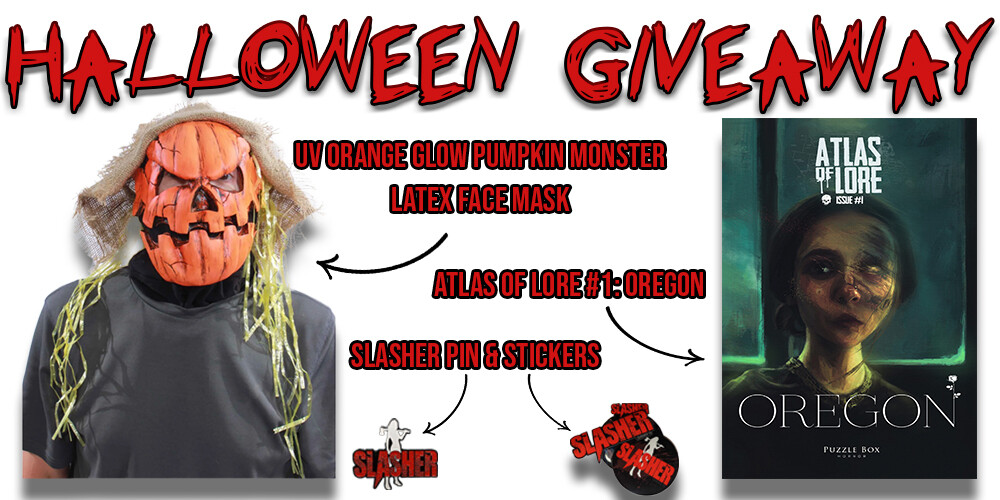In the world of sci-fi horror literature there are some common names that spring to mind first: Mary Shelley, Harlan Ellison, Philip K Dick, and Jeff Vandermeer. However, there are plenty of lesser known authors, or authors still early on in their careers, who are writing stories just as full of technology and terror as the genre classics. At Puzzle Box Horror we’re all about finding and promoting the best in horror, so we thought we would help shine a light on some of the newer or less known writers who need to be on your radar! When it comes to finding the best sci-fi horror books, you’re going to be glad you broadened your search and gave these authors a chance.
Sci-Fi Horror Authors
Joseph Sale
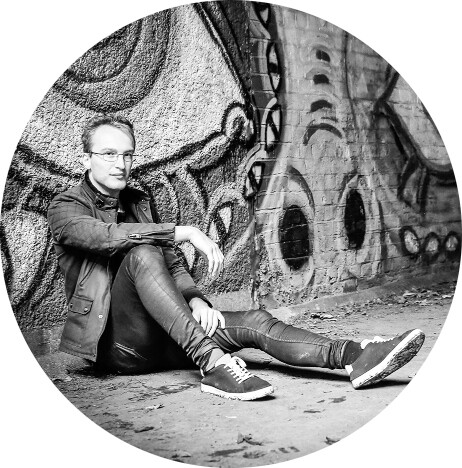
Joseph Sale is a prolific novelist and editor. His first novel, The Darkest Touch, was published by Dark Hall Press in 2014. He is published with The Writing Collective and has authored more than ten novels, including his Black Gate trilogy, and his love-letter to fantasy: Save Game. He grew up in the Lovecraftian seaside town of Bournemouth. His short fiction has also appeared in Tales from the Shadow Booth, Idle Ink, Silver Blade, Fiction Vortex, Nonbinary Review, Edgar Allan Poet, Storgy Magazine, and numerous anthologies.
1. Tell me a bit about yourself and what got you started in horror writing?
My name is Joseph Sale, but many call me the Mindflayer. I am a writer of horror, fantasy, science fiction, and many things in-between, as well as an editor; two titles I edited last year went on to the Bram Stoker preliminary ballot, and one is on the Nomination list! I love helping writers achieve their vision. As I say frequently, “The aim of an editor is not to point out what is wrong, but to see what the writers intended, and help them achieve that.”
In terms of horror writing, it came slightly later on for me. When I was initially starting out as a writer, I was mainly trying to write sword & sorcery fantasy. They were very hackneyed and derivative, and ultimately, they didn’t really read like “me”. They were Tolkien clones, aping the archaic style (but falling far short of it). But one day, I encountered a little known writer called Stephen King! The first book I ever read by him was The Stand. It blew my mind. I think I felt like King had found a way to translate that fantasy epic feeling into a modern setting. From then on, I became a horror junkie, and I started to write horror. I quickly realized that horror facilitated an exploration of darker themes; it allowed me to take off the shackles of decency and normality and delve into the roiling darkness of my own psyche in a way my previous attempts at swashbuckling fantasy had not allowed. This was a very therapeutic and healing process. Ultimately, in exploring the darkness, which only horror allowed me to fully do, I came to the light, so to speak.
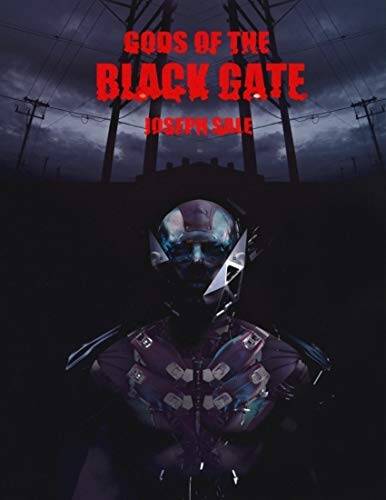
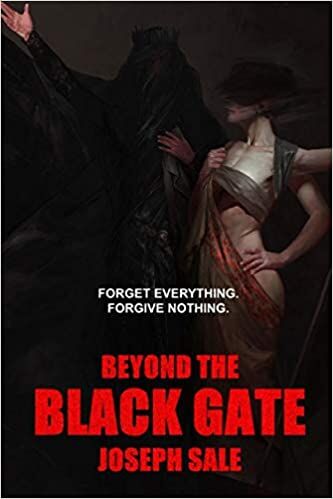
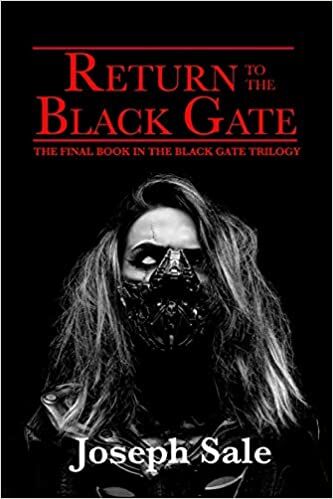
2. We talk to a fair amount of new writers. What tips would you give yourself if you could go back to when you started based on what you know now?
Wow, this is a hard question. I think my first tip would be less is more. I had a tendency to over-write to the nth degree when I started out. I still think that maximalism trumps minimalism in writing, and I prefer over-written to the “stark” and soulless prose of many popular writers today, but too much is very clumsy and ultimately detracts from the very emotional power one is trying to generate.
My other piece of advice would be to listen. By this, I mean to the inner voice. Sometimes, the intellect cannot solve a problem, only intuition and the deeper Muse can. It might sound flighty and poetic, but it is the truth in my experience. We all have this reservoir of knowledge. Our subconscious makes the right decision before we know it consciously. I too rarely listened to my creative intuition back then. Now, I am always waiting for that quiet voice to speak.
Next, structure, structure, structure. Many writers seem to believe they can find their way without understanding the internal structures of narrative (and I certainly used to be one of them). However, now I’ve learned (and teach) the 5-Act structure, it has totally transformed my fiction. I would highly recommend the 5-Act structure for its simplicity, versatility, and clarity (for more information, check out my blog here). However, we all have to find the one that works for us!
Lastly, I highly recommend joining a mastermind group / writer’s sharing group (again, something I never did until recently). The feedback and energy of a group is invaluable. That sense of community, being able to puzzle out problems with others, and also having access to workshops – all of these are so empowering. I am a member of Let’s Get Published run by amazing writer Christa Wojciechowski. It’s been a transformative experience.
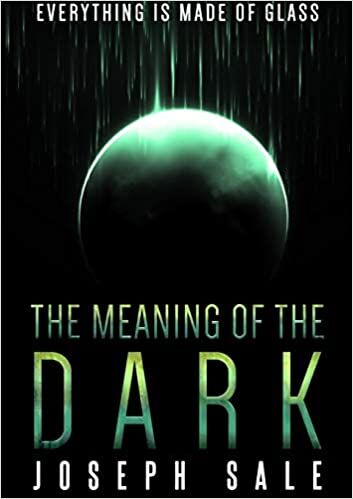
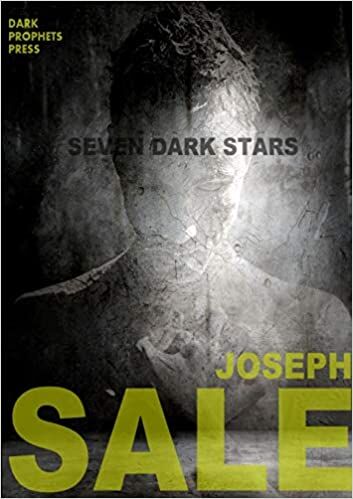
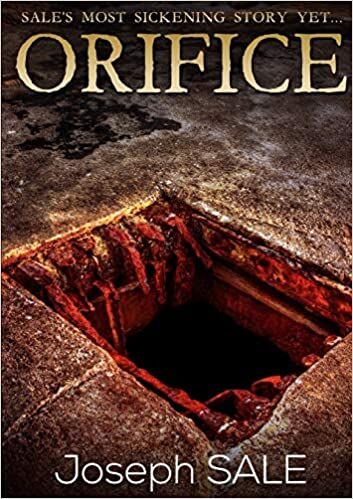
3. What is your favorite aspect of the sci-fi horror genre?
Horror and sci-fi have been linked for a long time, Mark Shelley’s Frankenstein being a prime example. I often conceive of science fiction arising from a place of anxiety. In the case of Frankenstein, this is certainly true – it’s clear that Shelley was disturbed by the idea of men playing God with galvanization, and, by virtue of doing so, supplanting the woman as the natural mother and giver of life. One need only look to the atomic bomb for further evidence that technology should be viewed with healthy suspicion.
Another way to look at it is that in some ways, sci-fi horror is an oxymoron, and I am always interested in contrasts! Horror is sometimes said to be the only genre defined by an emotion. The aim of horror is to make us feel something: horror, revulsion, disgust, paranoia, perhaps even terror, the list goes on. That is a very raw, potent thing. Science Fiction, on the other hand, is in general more intellectual. It appeals to the left side of the brain. It is imaginative – hugely so – but it comes from a place of trying to logically envision a future, be it dystopian or otherwise. When we blend the two together, we have a recipe for success: the rational science – the logic of humankind – pitted against the irrational horror. In many ways, this is mythopoeic and psychological, it almost seems to describe the battle between our conscious minds with our unconscious fears. It is a marriage made in heaven. And, of course, we all know that logic will never truly triumph over emotion, which makes the presence of horror in a sci-fi universe all the more powerful.
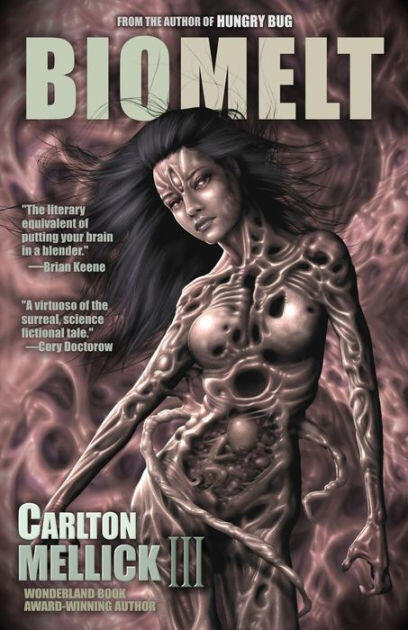
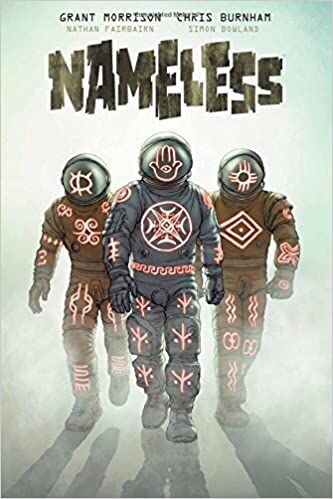
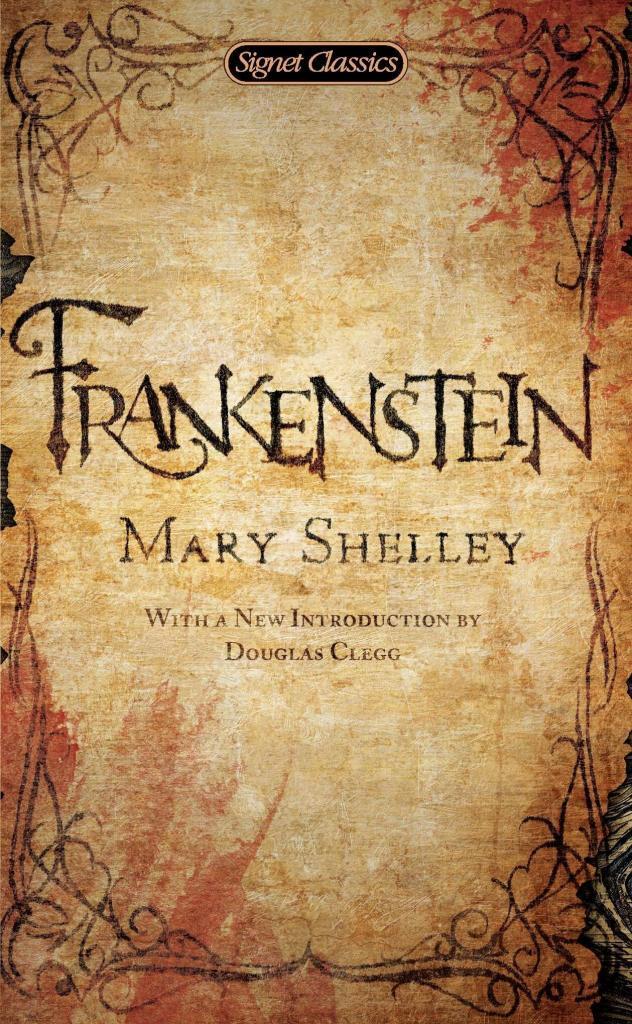
4. What are your top three favorite sci-fi horror books?
Three?! Only three? You are cruel.
Biomelt by Carlton Mellick III has got to be up there. The book is a work of genius. The science fiction is perfectly blended with horror. In this crazy, crazy novel, the overpopulation problem has been solved by people being “combined” in a bizarre scientific procedure that merges their physical matter, experience, and personality. I can’t say much more than that or it will give the game away – suffice to say something goes horribly wrong. This book is overflowing with incredible ideas and characters, including my personal favorite, a serial killer known as Porn Eyes, because he has watched so much holographic pornography it’s been seared onto his eyeballs. Amazing stuff.
To cheat a little, and branch out into the realm of graphic novels, I would also say Grant Morrison’s Nameless. Essentially, an asteroid named Xibala is heading towards Earth, and it’s going to be an extinction event. A group of astronauts is dispatched to destroy the asteroid, Armageddon–style. However, it soon becomes apparent that Xibala is no mere asteroid, it’s a remnant of a cosmic war, fought by Lovecraftian beings, a gateway to a dimension best left unfound. It is a truly harrowing read that effortlessly moves between science fiction, terrifying cosmic horror, and finally, into a universe of dream-language. It is mesmeric and profound. Don’t expect answers to come easy, though!
The last I’d have to recommend would be the great Frankenstein. Shelley’s prose is so potent. Every time I re-read Frankenstein, I see new things in it, new depths. Its relevance has only increased as time has gone on. Now, we have the capability to “improve” children by “removing” genetic defects – we are, more than ever, a society playing God, and if nothing else that has serious consequences for the psyche.
There have been many attempts to artificially modernize Frankenstein but invariably – at least in my view – they fail because they remove the best part of it: the language. Shelley’s style, and her sense of “what lies beneath”, is what makes the novel the powerhouse it is. The only remotely successful attempt in my view is Junji Ito’s manga-isation, which is a masterpiece (and which also remains extremely faithful to the original). I think the key thing is that for all Victor Frankenstein’s wordy monologuing on science, life, despair, creation, much is left unsaid in Frankenstein, and that is its true power, and a lesson to all horror writers.
If you’re interested in learning more about Joseph Sale, check out his website at www.themindflayer.com. You can also follow the author on Twitter (@josephwordsmith) and Goodreads (@Joseph_Sale). Finally, to purchase books check out the author on Amazon.
Caitlin Starling
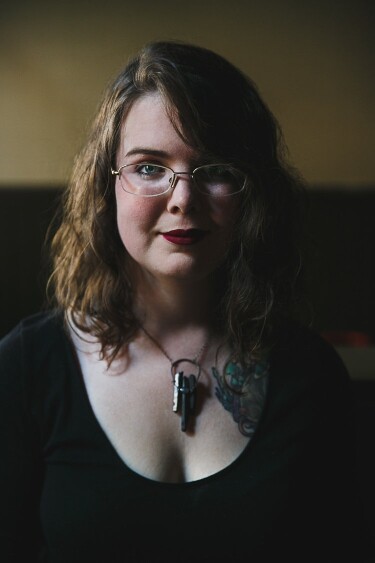
Caitlin Starling is an award-winning writer of horror-tinged speculative fiction. Her novel The Luminous Dead won the LOHF Best Debut award, and was nominated for both a Locus and a Bram Stoker award. Her other works include Yellow Jessamine and a novella in Vampire: The Masquerade: Walk Among Us. Her nonfiction has appeared in Nightmare and Uncanny. Caitlin also works in narrative design, and has been paid to invent body parts.
1. Tell me a bit about yourself and what got you started in horror writing?
I started writing really young and never really stopped, though my interests and goals have of course shifted over time. In particular, there was a period after high school until my mid 20s where I convinced myself that professional writing was far too hard and unrewarding a field to pursue. It sounds very cynical, but it was actually extremely freeing. It let me just write what I wanted to, without needing to stress too much about what it was “for”. I wrote a lot of fanfiction and did a lot of text roleplaying back then.
The whole time, I was undeniably drawn to tell darker stories (though not, notably, tragedies – those are way too sad!), but for a long time I didn’t think I liked horror. Really, I thought I was too much of an anxious weenie for it! And yet there I was, sending my characters through hell, always reaching for the most unsettling, fucked up option whenever I needed some details. I wrote so many words about death curses, obsessive research that led to ecstatic oblivion, seances gone horribly wrong, the terror of your identity being changed without your permission… Eventually, around the time I started what became The Luminous Dead, I figured out that I’d been writing horror of some kind all along, and decided to lean into it and start doing my homework so I could make it scarier for everybody.
(There are still times where I wonder if I’m “really” writing horror, and then a reader will offhandedly mention that I’ve made low battery notifications traumatic, and it’s like, yes, okay, I might not be scared of what I write, but everybody else sure is!)
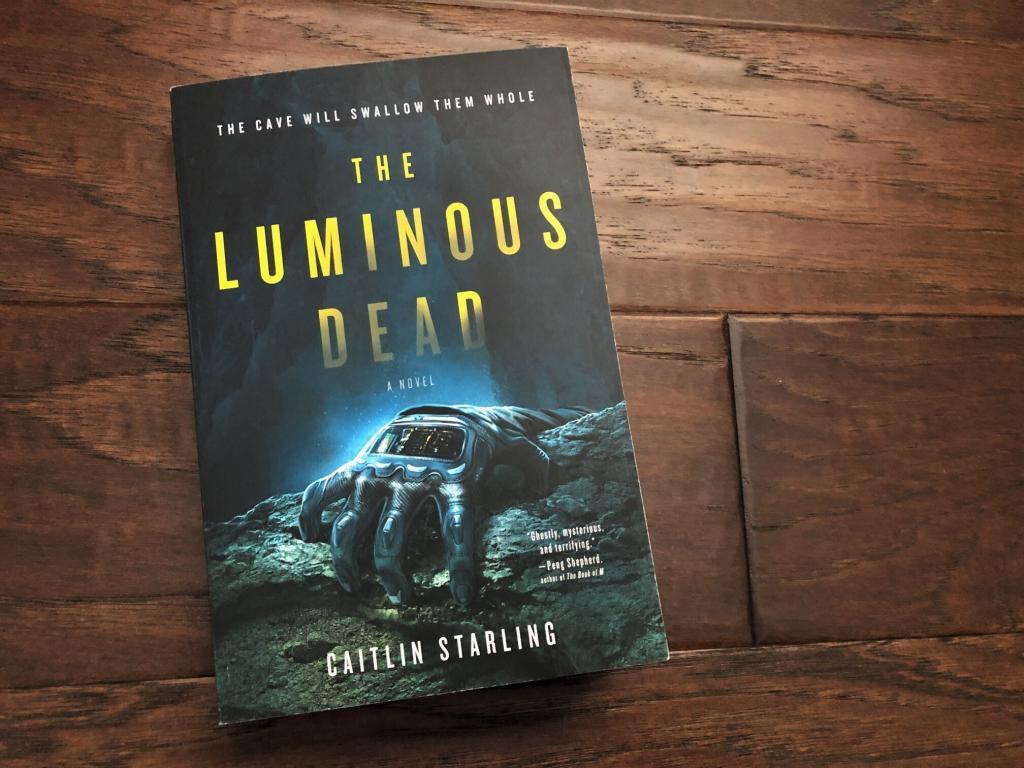
2. We talk to a fair amount of new writers. What tips would you give yourself if you could go back to when you started based on what you know now?
Have fun whenever you can. It gets way harder the more pressure is on you, but no matter what point of your career you’re in (at least up to where I am now!). Stepping back and writing something because it’s fun is always some combination of relief, freedom to experiment, and opportunity to learn without necessarily realizing you’re doing it. Like I already mentioned, I spent so many years writing fanfiction or doing text-based roleplaying with friends, and I banged out more words and tried more approaches with the “fun” writing than I ever managed to with my “serious” projects. Plus it was just enjoyable, and kept me focused on the truth that, no matter how hard it gets (and seriously, it gets hard, it just does) I still just fundamentally enjoy writing.
3. What is your favorite aspect of the sci-fi horror genre?
Technology doesn’t care if it’s good for us (neither do the people who create it, in a lot of cases). Every helpful facet of every tech advance seems to come with either a tradeoff or an unexpected consequence. It’s just really fun to play with, honestly: how can I take this neat invention I’ve created because it’s cool or to solve a plot issue and use it to cause even more plot issues. With The Luminous Dead, Gyre has a suit that keeps her fed and warm and protected from the cave. It carries her gear. It connects her to the surface so she isn’t alone. Great! Now what horrible things also come along with that? How does she get plugged into that suit, and what does it feel like a week on, a month? What happens if the communications feature doesn’t so much stop working as work in a way Gyre doesn’t understand? What’s it like, to be cared for and constrained by the same indispensable object that has no feelings about you either way?
So not only does tech change the landscape of what your characters can do or explore, and not only can it be a weird and surprising new threat, but those two things can be completely linked. It’s elegant and honestly really upsetting sometimes!
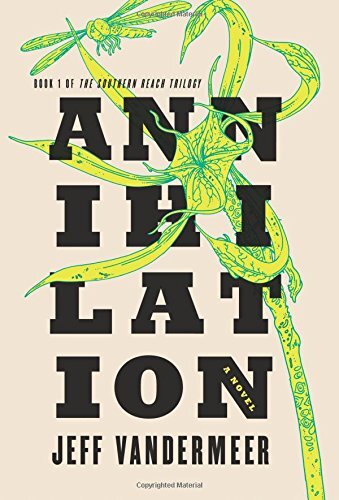
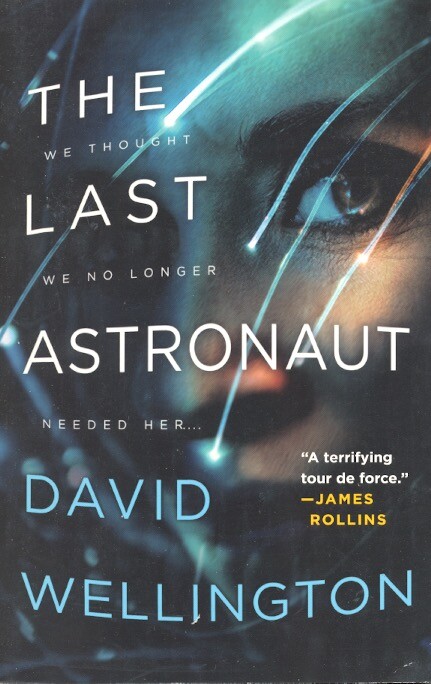
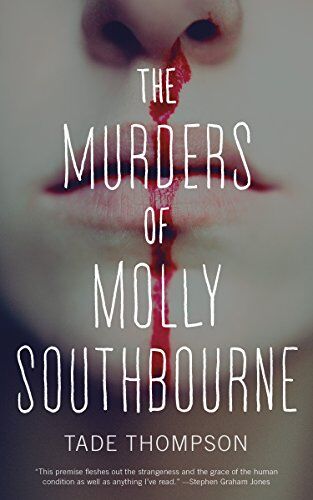
4. What are your top three favorite sci-fi horror books?
Annihilation by Jeff VanderMeer, which is a completely intoxicating mindfuck. I feel like it’s what would happen if The Thing and House of Leaves had a really environmentally-conscious baby.
The Last Astronaut by David Wellington does some extremely cool stuff with expectations of physical scale in space that I really, really loved. Not to mention some great psychodrama.
The Murders of Molly Southbourne by Tade Thompson is just a wild ride, start to finish. The sequel just cranks it up even higher. Clones! Secret government programs! Constant, relentless violence against yourself! It really has everything.
(Also, as a bonus: Leviathan Wakes by James S. A. Corey – first of The Expanse novels, you may have heard of them – isn’t a horror novel per-se, but the horror elements in it? Incredible.)
If you’re interested in learning more about Caitlin Starling, check out her website at www.caitlinstarling.com. You can also follow the author on Twitter (@see_starling), Instagram (@authorcstarling), and Goodreads (@Caitlin_Starling). Finally, to purchase books check out the author on Amazon.
Scott Jones
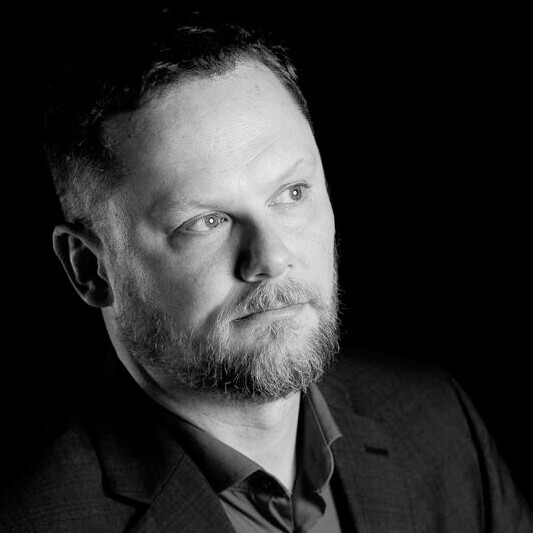
Scott R. Jones is a Canadian writer living in Victoria BC with his wife and two frighteningly intelligent spawn. He is the author of When The Stars Are Right: Towards An Authentic R’lyehian Spirituality (Martian Migraine Press) and the weird fiction story collection Shout Kill Revel Repeat (Journalstone/Trepidatio). His debut novel Stonefish was published by Word Horde in 2020. He was once kicked out of England for some very good reasons.
1. Tell me a bit about yourself and what got you started in horror writing?
I’m a Canadian fella from the west coast of British Columbia, so I’ve been steeped since childhood in that weird PNW vibe. Also, grew up in an apocalypse cult, so combine the two influences and you’ve got me and my work: paranoia, things in the woods, ultraterrestrial entities offering bad deals, crumbling “real” realities, compelling false realities, and so on.
2. We talk to a fair amount of new writers. What tips would you give yourself if you could go back to when you started based on what you know now?
I’m pushing 50 now and I know I lost a certain momentum by taking a long break from writing at the turn of the century, which I absolutely should not have done. I’d tell myself to not take that break, basically. Consistency in output is key; it doesn’t have to be good output, even, just make sure you keep at it regular-like. I’m not a “write every day” guy because c’mon, that’s impossible for most, but yeah, be consistent with putting your butt in the seat and your fingers on the keyboard.
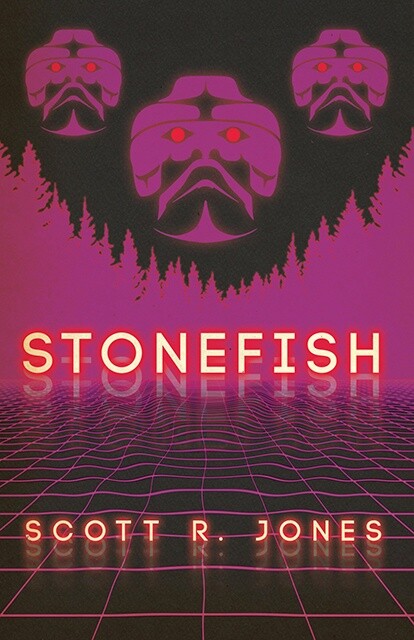
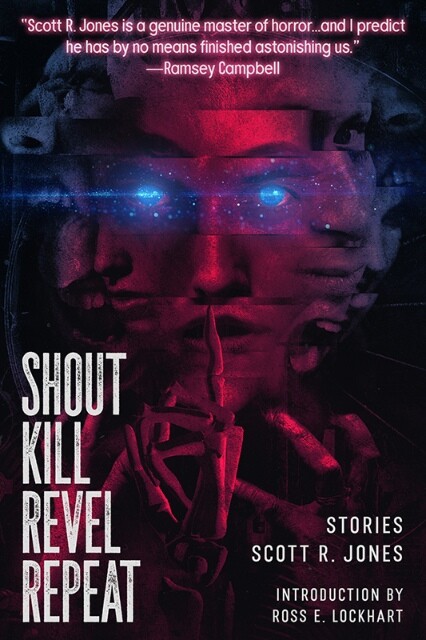
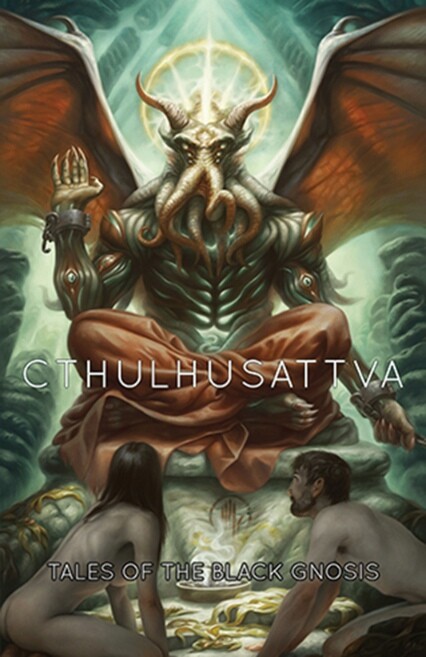
3. What is your favorite aspect of the sci-fi horror genre?
I think it speaks to a truth we are increasingly feeling to be relevant to our existence in the 21st Century. Lovecraft warned us of the “black seas of infinity” that surround our species and true to form, we are exploring that void of unknowing and correlating our contents! Will we go mad from the revelation? Seems we’re halfway there already. Sci-fi horror and weird horror are the genres in which we can explore these ideas most effectively, to my mind.
4. What are your top three favorite sci-fi horror books?
Solaris by Stanislaw Lem
Annihilation by Jeff Vandermeer
Communion by Whitley Striber
If you’re interested in learning more about Scott Jones, check out his website at www.scottrjoneswriter.com. You can also follow the author on Twitter (@PimpMyShoggoth) and Goodreads (@Scott_R_Jones). Finally, to purchase books check out the author on Amazon.
JZ Foster and Justin Woodward
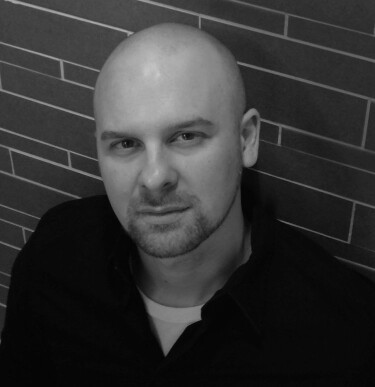
Born and raised in Ohio, JZ Foster moved to South Korea after college and lived there for 8 years, running a small English school, marrying a Korean woman and having a baby. In his time in South Korea, he’s become well versed in Korean politics and has done multiple radio interviews on South Korean and North politics. Since returning to the U.S., he’s launched his writing career and three series.
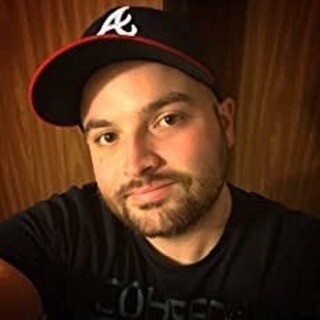
Justin M. Woodward lives in Headland, Alabama with his wife and two small boys, Nathan and Lucas. He is the author of three novels and dozens of short stories. You can follow him on all social media to reach out to him.
On a space station on Mars, a terrible mistake opens a gate to an alternate reality — and something comes through from the other side. After the station cuts off communication, a crew is sent to investigate, but they’re unprepared for the nightmare that awaits them…
Enter the world of Reality Bleed, a sci-fi thriller series by best selling authors J.Z. Foster and Justin M. Woodward (published under their press Winter Gate Publishing). Fans of Doom and Aliens will love this!
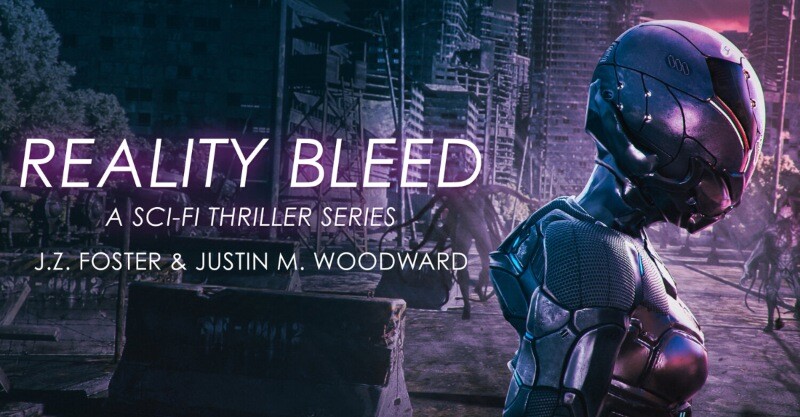
1. Tell me a bit about yourself and what got you started in horror writing?
J.Z. Foster: Like most horror writers, I’ve been watching horror movies and reading horror books since I was a kid. I still have a deep love for the Resident Evil games/books, and the movie Aliens has honestly had an impact on my life. I started writing because I had a hard time trying to find the types of books that I wanted to read. That and I love telling stories. I ran roleplaying games for my friends for years before I ever started writing, so I was telling stories then too.
Justin Woodward: I was interested in horror at a young age. I vividly remember begging my parents for the latest Goosebumps book every time we went to the store. I always wanted to create my own stories, even wrangling my babysitter into helping me “write a horror book”. To this day, I’m not sure what happened to that. Unfortunately, I didn’t start actually writing long fiction until I got the idea for my first novel, The Variant, which was more of a sci-fi thriller than horror. It wasn’t until the idea for Tamer Animals came about that I took the plunge to delve deeper into my dark side.
2. We talk to a fair amount of new writers. What tips would you give yourself if you could go back to when you started based on what you know now?
J.Z.: I only started outlining stories recently, and I found out that it helps a lot. I’d definitely recommend new writers do that! Other than that, I’d tell others (and myself) not to be too hard on their own work. Sometimes it’s difficult for writers to judge if their own work is ‘good’ or not, and all it ends up doing is slowing down the writing process.
Justin: Don’t waste time. Don’t second guess yourself. Put the content out there and be true to yourself. Don’t worry about following trends or the market, and don’t depend on anyone but yourself.
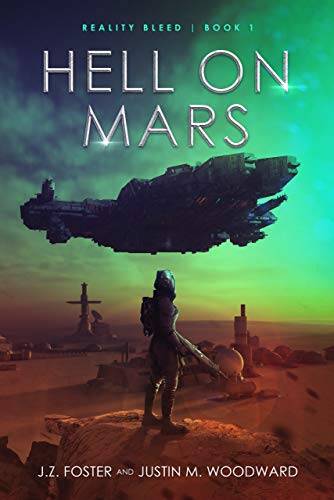
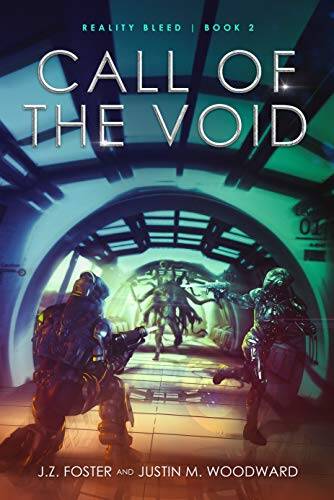
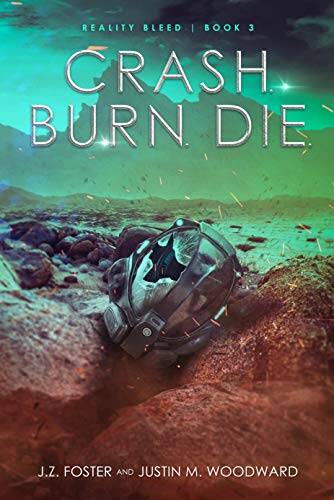
3. What is your favorite aspect of the sci-fi horror genre?
J.Z.: Certainly world building. I like creating a unique world for the characters to live in. I feel that in sci-fi, the world and environment needs to be a character itself.
Justin: I think I’m drawn to the fact that most things depicted in sci-fi horror are things that are actual possibilities in the real world, all we need to do is give it enough time.
4. What are your top three favorite sci-fi horror books?
J.Z.: That’s a good question, I’m not sure! Certainly a lot of Lovecraft and the Alien books, along with a myriad of comic books I’ve read in the genre. I can give you three movies though: Aliens, Pandorum, and The Thing.
Justin: Believe it or not, I haven’t read a ton of sci-fi horror. I was always into the genre as far as films go, but I never really got deep into the literature side of it. A few I’ve enjoyed are I Am Legend, John Dies At The End, and 1984.
If you’re interested in learning more about JZ Foster check out his website at www.jzfoster.com You can also follow the author on Twitter (@jzfosterauthor), Instagram (@jzfosterauthor), and Goodreads (@J_Z_Foster). Finally, to purchase books check out the author on Amazon.
If you’re interested in learning more about Justin Woodward, check out his website at www.justinmwoodward.com. You can also follow the author on Twitter (@justinmwoodward), Instagram (@justinmwoodward), and Goodreads (@Justin_M_Woodward). Finally, to purchase books check out the author on Amazon.
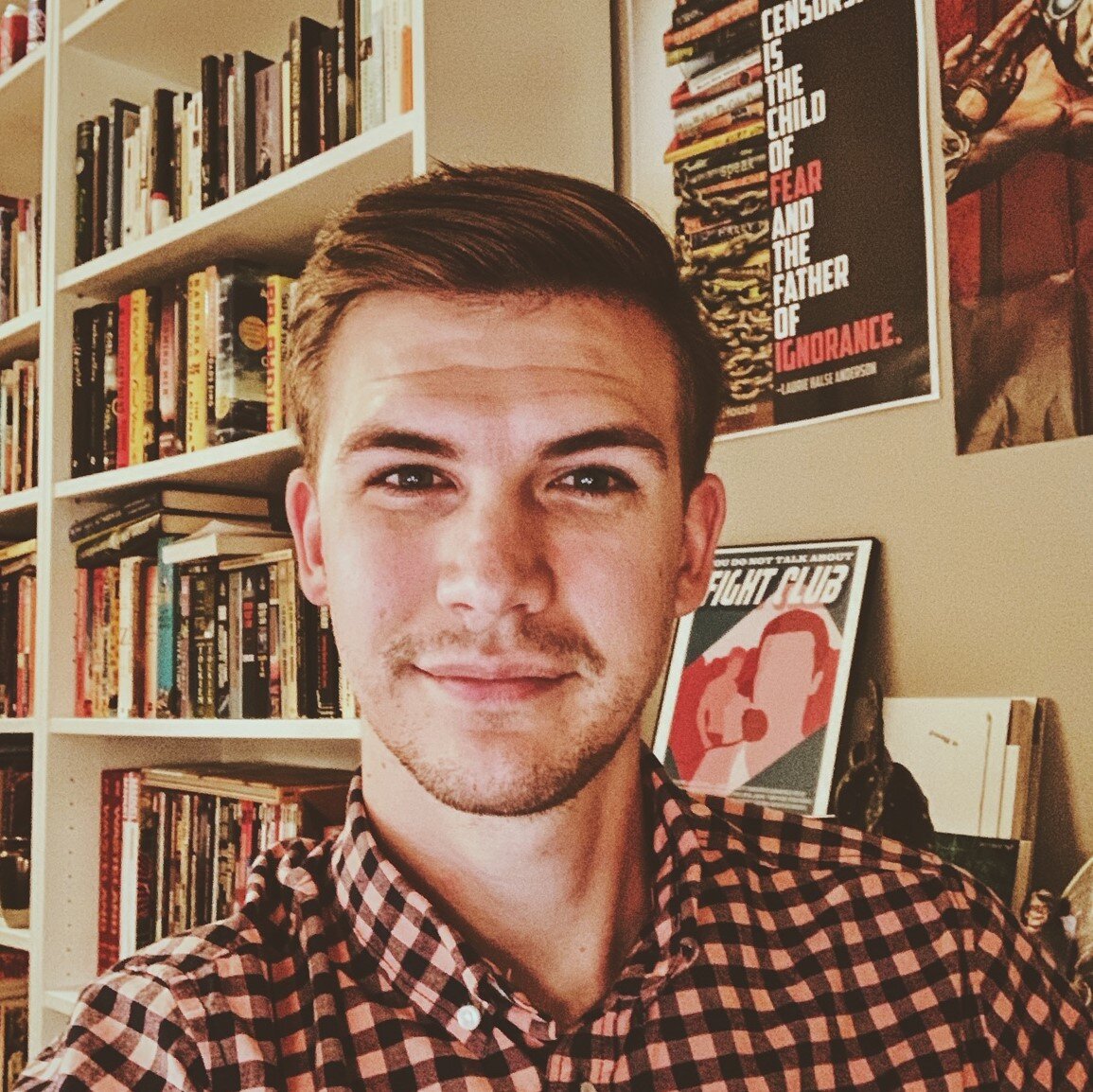
Ben’s love for horror began at a young age when he devoured books like the Goosebumps series and the various scary stories of Alvin Schwartz. Growing up he spent an unholy amount of time binge watching horror films and staying up till the early hours of the morning playing games like Resident Evil and Silent Hill. Since then his love for the genre has only increased, expanding to include all manner of subgenres and mediums. He firmly believes in the power of horror to create an imaginative space for exploring our connection to each other and the universe, but he also appreciates the pure entertainment of B movies and splatterpunk fiction.
Nowadays you can find Ben hustling his skills as a freelance writer and editor. When he’s not building his portfolio or spending time with his wife and two kids, he’s immersing himself in his reading and writing. Though he loves horror in all forms, he has a particular penchant for indie authors and publishers. He is a proud supporter of the horror community and spends much of his free time reviewing and promoting the books/comics you need to be reading right now!

